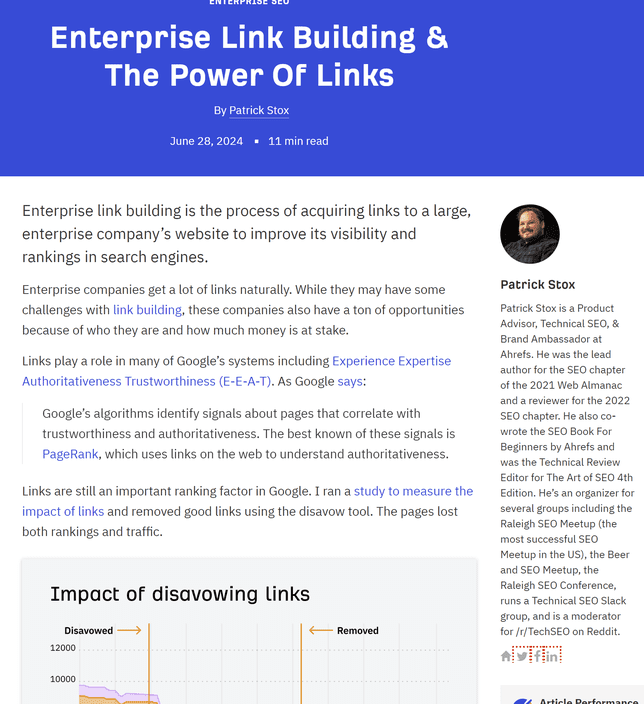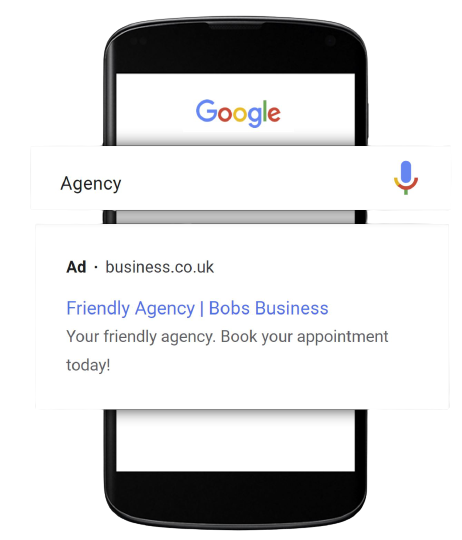In the digital world, small businesses are more up against it when taking on the big boys.
Whether you are a startup, a one-man band or a boutique business, it can feel overwhelming as larger companies often have significantly more resources, bigger budgets and an established brand.
But with a well-planned and executed small business SEO strategy SMBs can effectively compete on a more even battleground.
Here are the practical tips and strategies for small businesses to consider to boost the effectiveness of their SEO and stand out in a crowded space.
Table of Contents
Leverage Local SEO
Local SEO is a key strategy that should be used to help smaller businesses better compete with bigger firms.
While larger companies are more focused on SEO strategies at a national or international level, small businesses can pour all their efforts into ranking in local search results. Here are a few ways to leverage local SEO:
- Google Business Profile (Formerly known as Google My Business): Make sure your GBP profile has all the information including business name, address, phone number and opening hours. Update your GMB profile with posts, offers and new photos regularly. For more information click here.
- Include Local Search Terms: Use local keywords in your content. For example, a bakery in Sydney should use keywords like “Sydney bakery” or “best bakery in Sydney”.
- Local Citations: Get your business listed in local directories in your area and review sites such as Yelp, Trustpilot and other local business associations.


Create Good-Quality Content
As the old saying goes, content is king in the SEO world – this still very much applies.
Through high-quality content creation, your small business can start to attract (as well as build and retain) a loyal audience.
This is because Google favours articles, guides or service pages that are well-written, deliver real value to users, as well as better satisfy the needs of a chosen search query.
Here are some bonus tips for content creation:
- Blog Regularly: Have an active blog that provides value to your audience. Write about observations and industry trends, how-to guides and customer success stories.
- Try To Include Long-Tail Keywords: Focus on long-tail keywords that are specific to your business. While these search terms typically have lower search volumes, they can be more valuable for SEO purposes, because they are more targeted and can have an impact on conversion rates.
- Try To Include Different Forms Of Multimedia: To add variation to your content (and a little more colour), try to include different forms of media such as images, infographics, videos and even podcasts to make your content more engaging and shareable with people. Remember, authentic imagery goes a long way!
Mobile Optimise Your Website
It’s no surprise that most searches are now happening on mobile devices.
Despite this, both devices should be considered when reviewing some insightful findings from the websites SemRush And Research.com :
Mobile Traffic: Mobile devices accounted for significantly more visits than desktops, with mobile traffic surpassing desktop traffic by 313% in terms of visits and 233% in unique visitors in 2023.
Engagement Comparison: Desktop users exhibited higher engagement metrics, with 33% more page views per visit and spending 79% more time on a website than compared to mobile users.
Bounce Rates: Desktop users had lower bounce rates than mobile, 49.05% vs 53.51%.
- Market share: In terms of market share, Google owns 82.74% market share on desktops and a whopping 95.16% on mobile.
User Behaviour: Mobile take longer to decide before clicking on a result, desktop users have more zero-click searches and faster decision-making times.


How Do You Make Your Small Business More Mobile-friendly?
Here’s how :
- Responsive Design: Use a responsive web design that adapts to different screen sizes.
- Fast Loading Times: Optimise images, use browser caching and minimise code to make your website load fast on mobile devices.
- Mobile-Friendly Navigation: Simplify your site’s navigation for mobile users to improve user experience and reduce bounce rates.
User Experience
User experience (UX) is another factor that Google looks at.
A website that provides a good user experience will keep visitors engaged and reduce negative metrics such as low engagement rates and higher bounce rates.
Some Key Things To Consider:
- Have A Simplistic/Clean Design: By using a clean professional design with ‘easy-to-read’ fonts users will be less distracted by a chaotic UX and more likely to convert.
- Easy Navigation: Ensure your website’s navigation is intuitive and easy to use.
- Interactive Elements: Ensure you are using chatbots, simplistic contact forms and calls to action to engage visitors and convert them into customers.


Backlinks
Backlinks are a confirmed ranking factor. This has been confirmed by Google itself.
from other websites can boost your SEO big time. Here are ways to get high-quality backlinks:
- Guest Blogging: Write guest posts for industry-related blogs and include a link back to your site.
- Partnerships: Partner with local businesses or industry influencers to exchange backlinks.
- Create Shareable Content: Create infographics, research studies or comprehensive guides that others will want to share or link to.
- Sponsor Local Events: Sponsor local events or charities and get listed on their website.
- Collaborate with Local Influencers: Partner with local influencers to create content and earn backlinks.
Social Media
Although Social media does not directly impact SEO for small businesses, it does amplify a company’s referral traffic, bringing in more potential leads for the website.
Whether a company shares content on Facebook, Twitter or LinkedIn it can also help search engines determine the legitimacy of a company. Social media profiles also show up in search results so more potential customers can find and engage with a brand. To summarise, social media helps build a stronger online presence that supports your SEO efforts.
- Share Content: Post your blog articles, infographics and other content on social media.
- Engage with Your Audience: Respond to comments, participate in discussions and engage with your followers to build a loyal community.
- Use Social Media Ads: Invest in social media ads to reach a bigger audience and drive traffic to your website.


Schema Mark-Up
Schema markup is a type of microdata that helps search engines understand your website better.
Implementing schema markup will improve your website’s visibility in search results. Here’s how to get started:
- Choose Schema Types: Decide on the types of schema markup relevant to your business, such as local business schema, product schema or article schema.
- Use Structured Data Tools: Use Google’s Structured Data Markup Helper to add schema markup to your site.
- Monitor Performance: Use Google Search Console to monitor your schema markup performance and make changes.
Customer Reviews
Customer reviews and testimonials can impact your local SEO and overall online reputation.
Through positive reviews, they send signals to search engines that your business is trustworthy and legitimate, which boosts rankings in local search results. This increased visibility leads to more traffic and, ultimately, more customers and business leads.
Here’s how to use them:
- Ask for Reviews: Ask happy customers to leave reviews on Google, Yelp and other review sites.
- Respond to Reviews: Respond to positive and negative reviews professionally and promptly.
- Display Testimonials: Show customer testimonials on your website to build trust and credibility.

Conclusion
Competing with bigger businesses is challenging, but not impossible for small businesses.
By following these basic SEO strategies and working to implement them properly, SMBs can improve their online visibility, attract more customers and better compete online.
The important thing to remember is that SEO is a long-term investment and consistent efforts will yield results over time.
Finally, small businesses must stay updated with the latest SEO trends to appropriately adjust their strategies as needed.
Try Small Business SEO Services With Business Medics Australia
Boost your online visibility and attract more local customers with professional Small Business SEO Services from Business Medics Australia.
Our expert team specialises in optimising SMB websites to rank higher in search engine results, ensuring they stand out in a competitive market.
We assist businesses all over Australia including Sydney, Melbourne, Adelaide, Brisbane and Perth.


